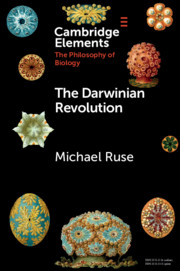Element contents
The Darwinian Revolution
Published online by Cambridge University Press: 27 June 2019
Summary
Keywords
- Type
- Element
- Information
- Online ISBN: 9781108672047Publisher: Cambridge University PressPrint publication: 25 April 2019
Bibliography
- 13
- Cited by

